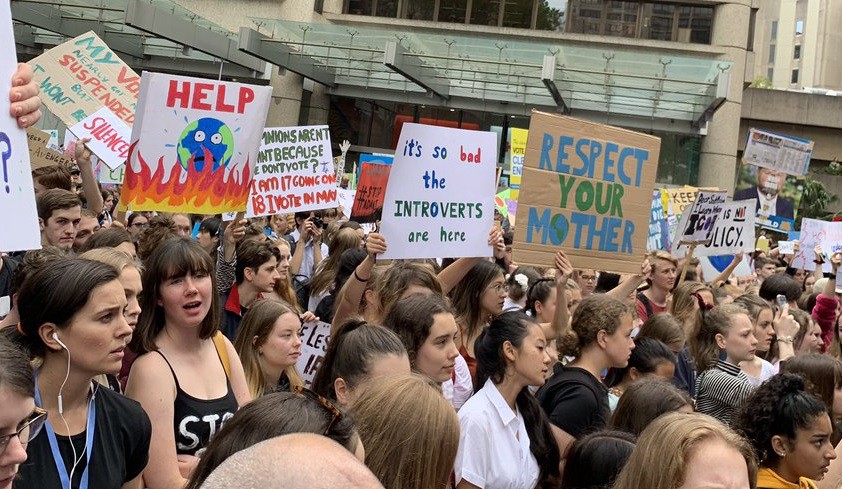This year we celebrate the 10th anniversary of the first international degrowth conference in Paris, 18-19 April 2008. This event introduced the originally French activist slogan décroissance into the English-speaking world and international academia as degrowth. This year we celebrate with three conferences: the current one in Malmö, the one in Mexico City from 3 to 7 September and at the Post-Growth conference at the European Parliament in Brussels on 18 and 19 September. How did we get there?
Every two years, the Support Group (SG) releases an open call for the next conference, receives and select the proposals. It then helps the local organizing committee, the real protagonist of each conference. Within the plurality and increasing number of events on degrowth that we experience and participate in, the SG wishes to develop a clear identity and philosophy for the International Degrowth Conferences as a regular and recognizable event where scholars, civil society and practitioners come together to update each other on their degrowth-related research and activities. Apart from demonstrating latest research in the field, the conferences aim at promoting cooperative research, activism and art in the formulation and development of research and political proposals. Furthermore, we attempt to provide the necessary means and tools for people engaged in degrowth research and praxis to network at and between the conferences, increasing the potential of our movement to contribute to needed societal transformations. These includes degrowth.info (with the media library and this blog), a mapping of degrowth groups and scriptum, an open source platform developed by Ecobytes in collaboration with conference organizers to manage the submission and review process of the contributions to the conferences.
Six international degrowth conferences have already taken place:
·
Paris (2008): It was the first one, organized by Francois Schneider with Denis Bayon and Fabrice Flipo, with 140 participants, mainly academics from fields like ecological economics. Most participants were presenters; we opened registration only for a few days and we were submerged by people wanting to participate. It launched the term ‘degrowth’ in English. "
Décroissance" in France was mainly activist, in this conference we wanted to reach international scientists. The outcome of one workshop was this
conference declaration.
·
Barcelona (2010) was the second one with 500 participants. Parallel sessions with academic papers were presented, but also workshops. Initiated by François Schneider, the conference organisation became very participative forming a strong Barcelona
Research&Degrowth group. It also innovated by inviting activists and practioners, as well as in the format by having a beautiful posters tour and the
Group-Assembly Process (GAP) on 30 topics. This conference too had a
conference declaration.
·
Montreal (2012): This was the first conference in the Americas with 500 participants, involving all five main universities in Montreal, French- and English-speaking. It brought together academics, activists, environmentalists and indigenous peoples from Canada, the USA, Europe and Latin America. Over five days, 95 trilingual presentations and workshops linked the themes of grounding, knowing, connecting, relating, sharing and experiencing, with a focus on links of the Global South and the North.
·
Venice (2012): was the third European one with 1000 participants, in beautiful Venice. The Italian degrowth tradition helped to move the focus away from only (ecological) economics to post-development, culture, democracy, commons and spirituality. Its hybrid formula - with scholars and activists discussing together in over 60 participatory workshops - and a massive participation by youngsters and women from all over the world injected some new blood into the degrowth movement, while calling for an alliance with the movements for social and environmental justice.
·
Leipzig (2014): the fourth European one and remarkable not only for the number of participants (over 3000!), but also for its democratic organization; focus on the Global South and alliances with other social movements.
·
Budapest (2016): the fifth one in Europe, back to ‘small is beautiful’ with 600 participants, plus decentralized activities open to all, the Degrowth week (another 500 participants). The academic discussions showed maturity, with many scholars with degrowth as their main research interest. This conference will remain in our memory for the social life all around the city of Budapest.
The
6th International Conference on Degrowth for Ecological Sustainability and Social Equity: ‘Dialogues in turbulent times’ is currently taking place in Malmö (Sweden), until 25 August.
Parallel to this, two complementary and twin events will soon be taking place:
– The
First North-South Conference on Degrowth: ‘Decolonizing the social imaginary’ in Mexico City from 4 to 6 September 2018 and
–
Degrowth in the EU Parliament is a post-growth conference to challenge the economic thinking of EU institutions with influent EU policy-makers, to be held in the European parliament in Brussels on 18 and 19 September.
A significant momentum around the idea of degrowth
The international conferences on degrowth are central landmarks and moments of convergence of the international degrowth intellectual and social movements. They offer an unique opportunity for bringing together scholars with other members of civil society and demonstrating a different way of organizing conferences. A central feature of the conferences has been direct participation and collaboration among participants.
The past international degrowth conferences have been strongly influential in defining and opening new research and political fields. They have been inspired by social movements and experiments, and developed policy proposals as well as initiatives for social experiments in a wide range of areas. And besides all this, they managed to attract not only significant participation but also attention from the general public and the media.
There is now a significant momentum, academic and political, around the idea of degrowth. Other conferences, research projects, courses and summer schools on degrowth have taken place in the same spirit in India, Quebec, Canada, England, Sweden, Greece, Czech Republic, Finland, the Basque Country, etc. Each of these conferences has done a lot to advance the scientific discussion around degrowth, and to make the debate publicly visible. One sign of the success of the conferences as well as other mentioned initiatives is the substantial body of research on Degrowth published in international academic journals (over 200 articles and 8 special issues that have gone through normal peer review processes). Reference books like the "
A degrowth project" or "
Degrowth: A Vocabulary for a New Era" have been translated in more than 10 languages. For a more detailed account of achievements in terms of publications, training and more recently policy making, see
this article in the Ecologist. The International Degrowth Conferences had an increasing number of participants and managed to outreach to other groups, initiatives, and movements not directly involved in the degrowth debate but working on similar issues.
The SG thanks all organizers and participants of the past conferences and is looking forward to a new decade of degrowth networking, activism, research and transformation.
If anyone is interested to organize future international degrowth conferences, please do not hesitate to contact the Support Group.
For more information, see:
https://degrowth.org/conferences/
About the author
The Support Group of the International Degrowth Conferences
A collective constituted by representatives of former degrowth conference organising committees. As of 2025: François Schneider (Paris), Brototi Roy and Federico Demaria (Barcelona), Jean-Louis Aillon, Silvio Cristiano, Mario Sassi, Michel Cardito (Venice), Gualter Baptista (Leipzig), Vincent Liegey, Alexandra Koves (Budapest), Ekaterina Chertkovskaya (Malmö), Mark Burton (Manchester), Mladen Domazet (Zagreb), Cristina Vázquez Santos, Mario Pansera, Brais Suárez Eiroa (Pontevedra), Elisabeth Veivåg Helseth, Erik Gomez-Baggethun (Oslo).
More from this author

